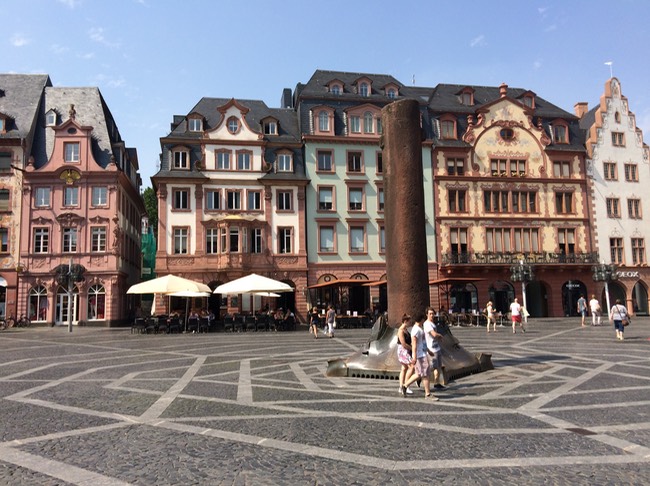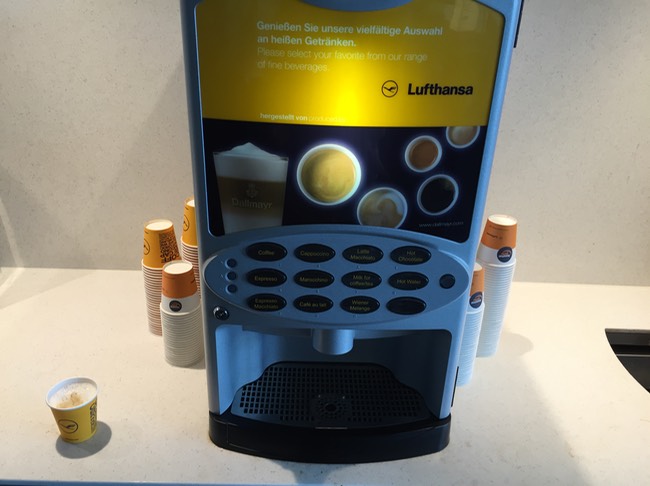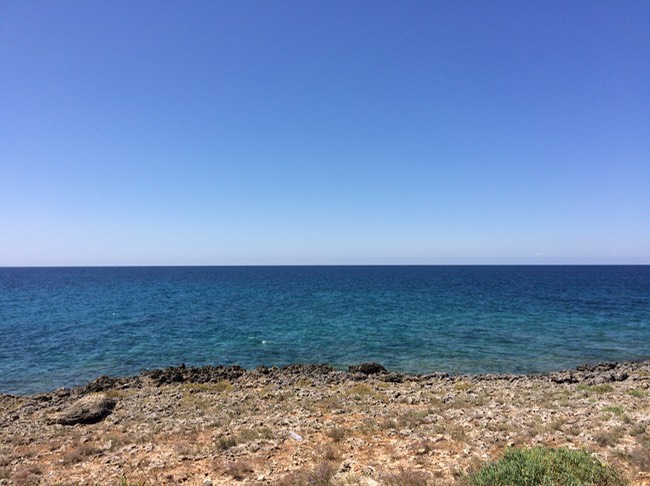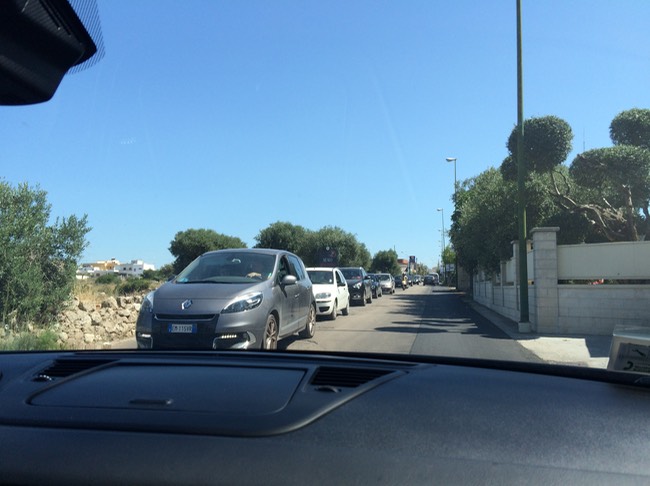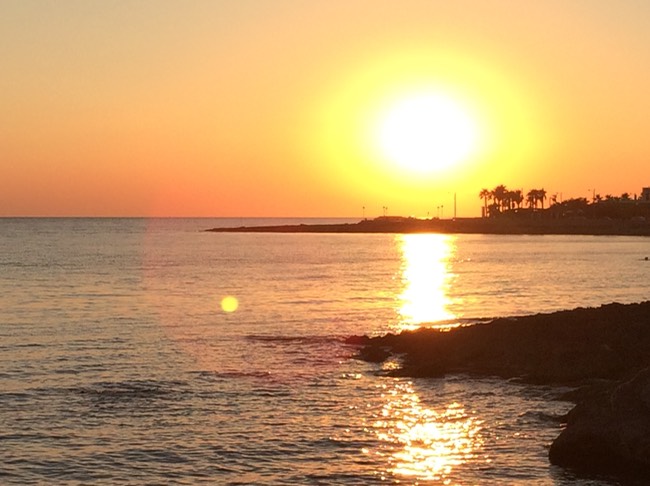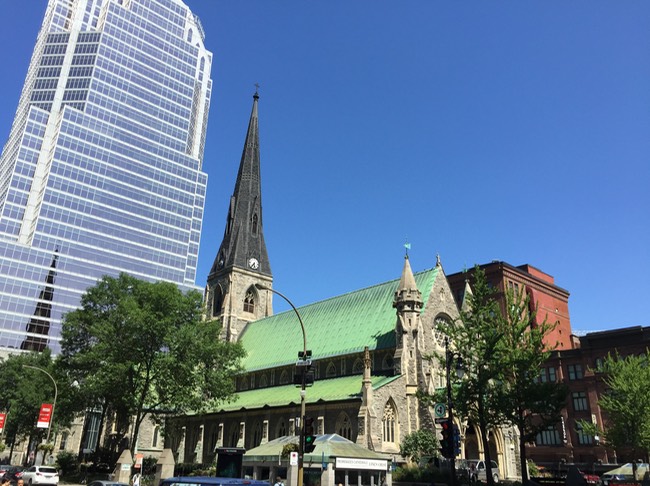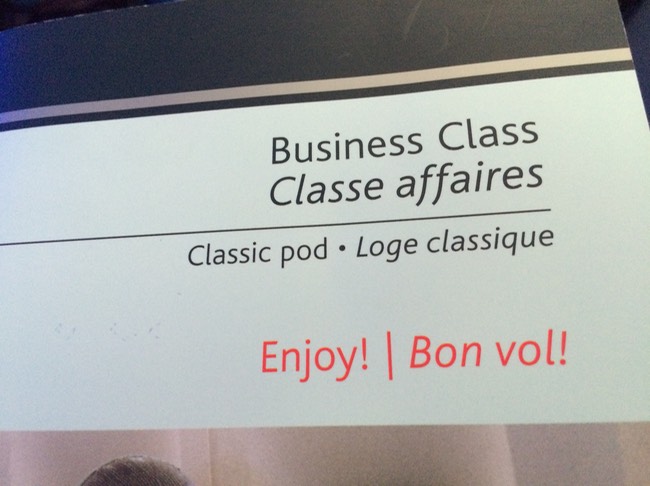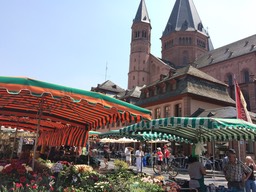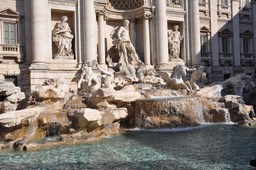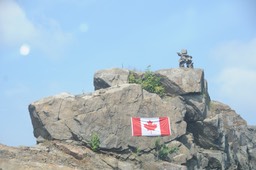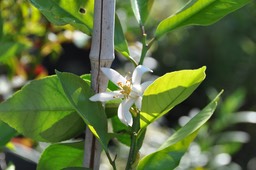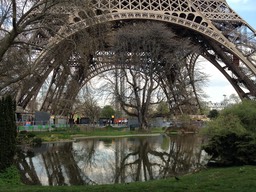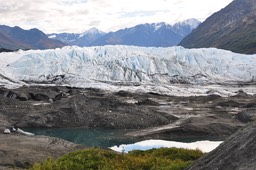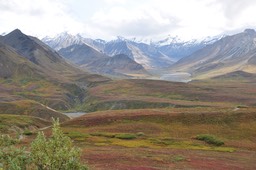EuroTravels
Stopover in Mainz
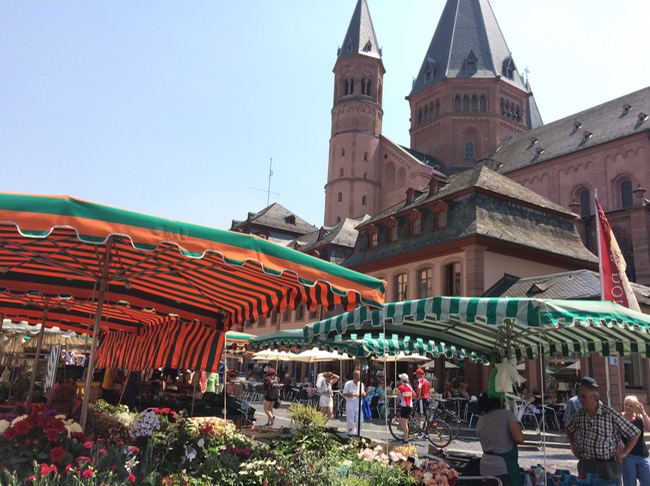
We had a few hours to kill in Frankfurt, while en route from Vancouver to Napoli, so after a little research and some thought about what we would be up for after an overnight flight to Europe, we decided to take the train into the town of Mainz. We chose Mainz on the grounds that it is easy to access from the Frankfurt airport, it has a compact historic centre, and it has the Gutenberg Museum (my husband being a bit of a printing nerd).
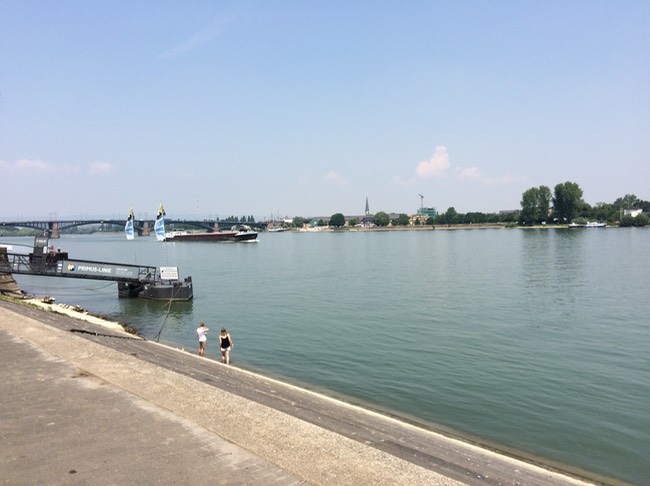
Mainz is a quintessentially German town, with classic half-timbered buildings, squares, markets, and the Rhine! Our son was delighted with it as he had been keen to get a look at Germany, and Mainz feels very German. We passed through a lovely square with the market in full swing, and made our way to the river to have a look at the famous Rhine.
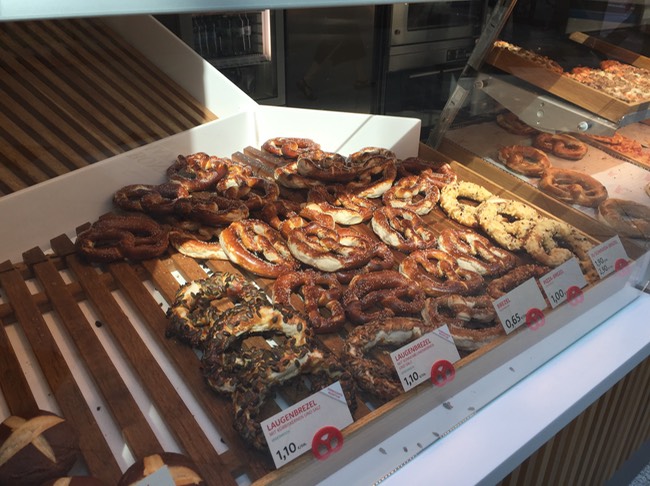
The Gutenberg Museum was not a disappointment, filled with interest exhibits regarding the history of print, including a Gutenberg Bible on display. It also had the aptly-named Cafe Codex in the courtyard, where we were able to sit in the shade drinking German beer and eating fries, and our son had what he called the best veggie burger of his life. We picked up some big, salty pretzels from a pretzel wagon later on, a quintessentially German experience!
The stop would have been more fun had it not been so hot. The temperature was in the high thirties (celsius), apparently record-breaking and certainly hotter than we can remember Germany being during brief visits in the past. And it was extremely humid, so we really couldn’t walk around as much as we would have liked, especially given our tiredness. So we went back to the airport and napped in the air conditioned terminal, getting occasional refreshment from the automated espresso machine that Lufthansa provides free to their passengers.
Photos: Schillerplatz; market in the Domplatz; the Rhine; pretzel wagon; compliments of Lufthansa (Photos 4,5 N. Wilkes)
Viva Italia
Torre San Giovanni Six Years On
How to talk about a place that is so familiar to us now? We first discovered Torre San Giovanni in 2003, in the off season, which in those days ran all the way into July. It was a sleepy little place that time, with maddeningly little tourist infrastructure and a gorgeous beach. We thought we had found paradise!
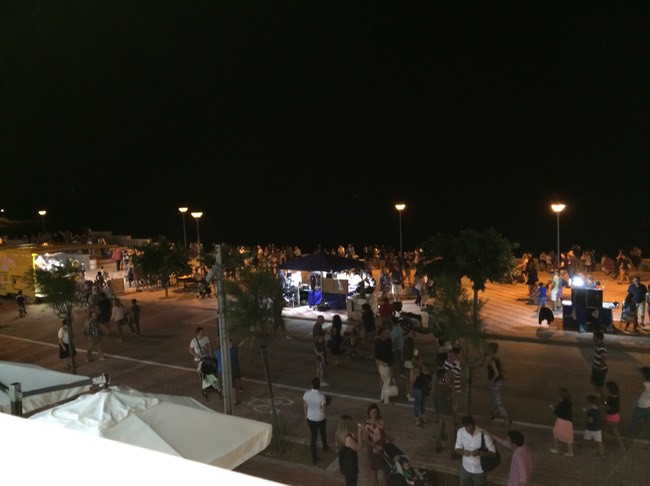
We returned four years later– long years, they felt at the time– at midsummer, with tourist season in full swing. We were delighted with the lively evening passeggiata along the waterfront and its carnival-like atmosphere, and there were a few more restaurant choices, including the incomparable Scoglio di Pirro, where we could enjoy local dishes and heavenly pizzas in their charming garden patio. And, sign of things to come, there was a soon-to-open shop that would sell “produtti tipici”, that magic password to all things regional and cool.
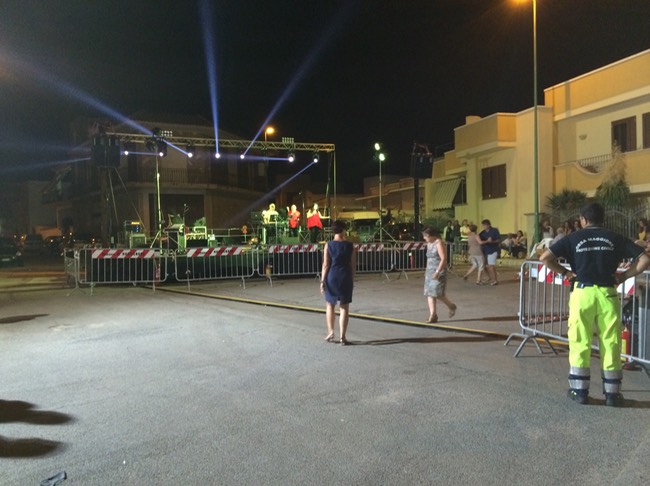
Our third trip was a mere two years later, and little had changed. We drove all over Salento, exploring the unknown hill towns on market days, and returning home to swim and cook supper on our patio, or occasionally, to eat in town. One noticeable difference this time was the growing interest in pizzica, the lively folk music of Salento, which was now experiencing something of a rebirth.
Six years passed, while we visited other places and thought wistfully of our Italian friends and the beautiful Salento countryside. And then we returned, with both eagerness and a little trepidation as to what we would find.
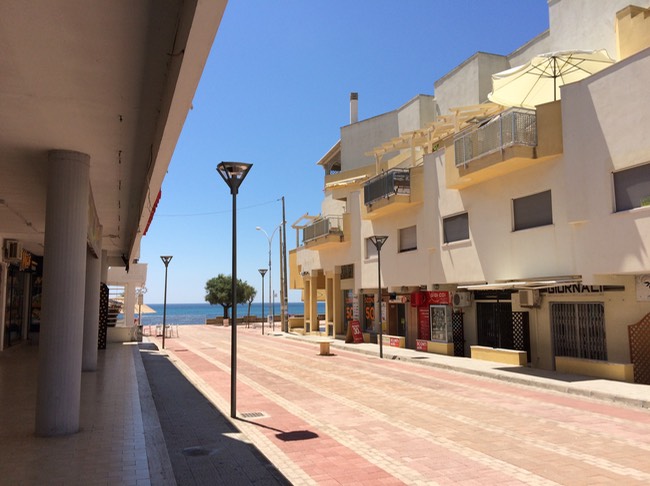
Our little haven has grown in popularity. In addition to the six-week high season, there is a preceding rump season which appears to be mostly taken up by Italian tourists (we were told that the Germans would show up after mid-July). The centre of the village is largely unchanged, especially first thing in the morning and during the mid to late afternoon, when everyone is either indoors or at the beach. However, at the northwest end of town, we discovered many more houses and apartment buildings, shops and restaurants. I learned that Torre San Giovanni has 450 full time residents, and fifty thousand in the summer!
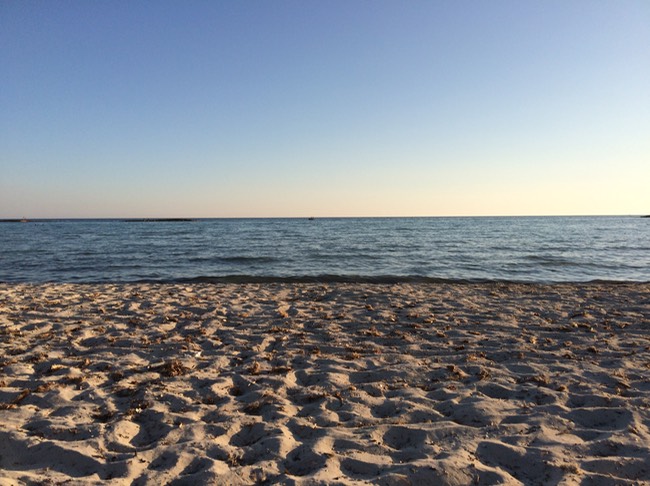
Our local lido is a bit busier than it used to be, but is still a family beach, with people of all ages enjoying the water and the sand. The music played by the beach establishments is a little more contemporary now, less seventies-era disco. But the North African hawkers still haul blankets, jewelry, and sun glasses up and down the beach; and the pesche fresca guy is still there, bellowing out his wares through a megaphone at a volume that can be heard all the way out to the parking lot. The water is still bright turquoise, and warm. It is a happy place.
There is definitely a morning rush nowadays, and on Sundays, traffic now backs all the way up the Ugento road. There are even minivans that shuttle people in and out from the hotels. However, a drive down the coast through Torre Vado, which is just as insanely crowded and touristy as we remembered, put any little changes in Torre San Giovanni into perspective.
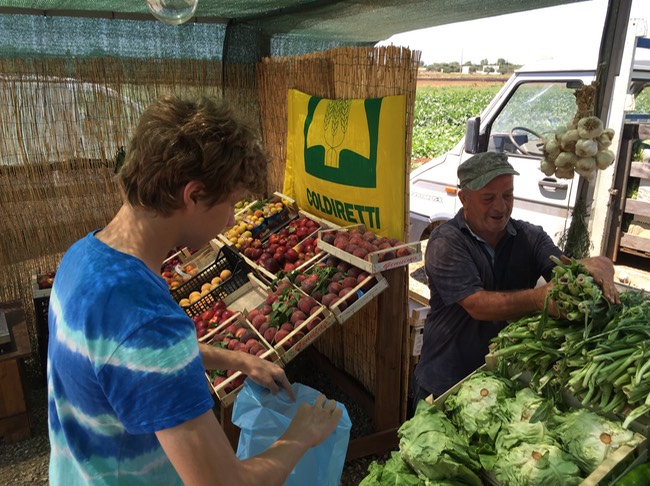
The people are unchanged, warm and friendly as always. And marvellously, we were remembered. Our favourite restaurant has renovated, but is still there, and the proprietor recognized us the minute we walked in. Similarly, both the owner of the pasta shop in Ugento and the elderly owner of the ceramic store in Torre San Giovanni recalled the canadese visitors, and said so as soon as they saw us. And we met new people as well. Outside a little gourmet shop in Lecce, we noticed a van from the Leone di Castris winery. When we told the driver that we buy their wine in Canada, he gave us a corkscrew and a bar apron. My husband chatted with some cyclists who arrived a bit sweaty at the café. They were interested to hear that he cycles to work in Canada, where it is more freddo.
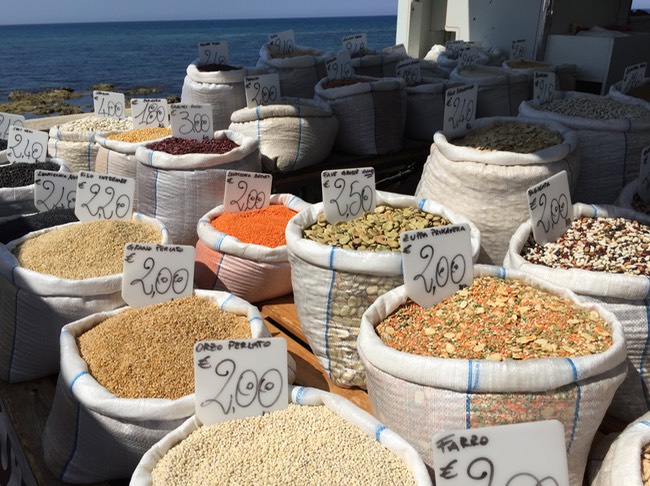
The Torre San Giovanni market still stretches along the waterfront on Monday mornings, always good value with its combination of food, housewares, clothes, and bric a brac. In the evening, there is often a sagra to be found in some nearby town, ostensibly celebrating some local specialty, but really just a chance to eat and drink, listen to music, and patronize a variety of vendors. However, many of the hill towns still haven’t realized that they have anything visitors might like to see. Our trip to Casarano led to the same frustrations we experienced years ago, trying to find the early Christian church mentioned in the tourist brochures. As there is virtually no signage marking it out in any way, you can only find it through luck.
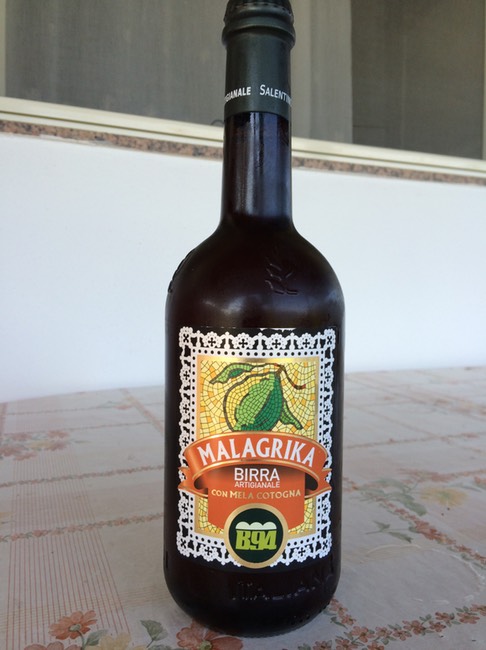
In the coastal areas, however, increased tourism means more shops catering to visitors, and quality local food and beverages are easier to find these days. Wine and olive oil producers are starting to take themselves more seriously (we were already beginning to see this six years ago), and the availability of local craft beer added a delightful new dimension to our meals.
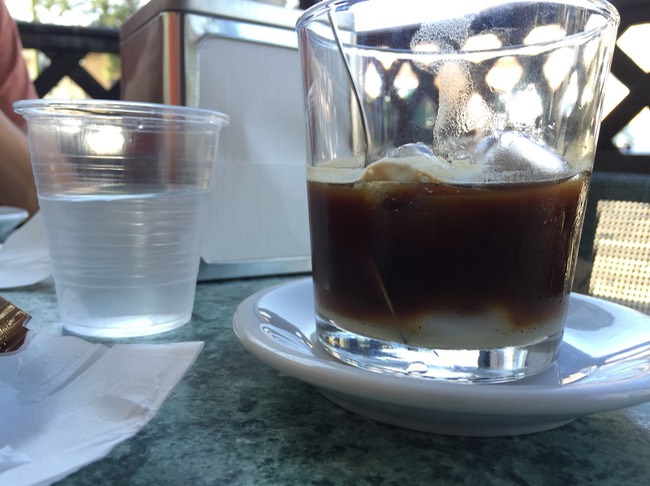
We also discovered new ways to enjoy the local culture. Having agreed that we missed the cafés and wine bars of our urban Italian visits, we soon established a habit of going into town in the morning for coffee at a delightful pasticceria in the centre of town, where we could have coffee on the patio and watch the day begin. The fact that most of the summer visitors were Italian and repeat visitors provided a nice sense of place, as people came and went who obviously knew each other.
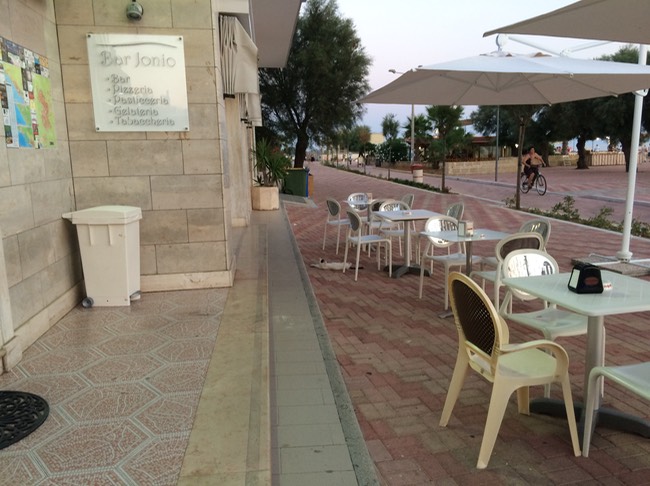
Similarly, we dined out more frequently than in the past, often walking in early to see the sunset, which we would watch from a table outside a waterfront bar. This little spot has always been there, but we had never patronized it other than for an occasional gelato. As a spot for a pre-dinner drink, it was superlative.
And after all is said and done, this is still southern Italy. For several days, the cash machine in Torre San Giovanni would not allow withdrawal from debit cards, so we had to drive to Ugento to get money. As we turned away, cashless, the man behind us asked, “No?” “No,” we replied, matter-of-factly. Things have not become too slick in Torre San Giovanni, and we are grateful for it.
Photos: Still an unspoiled oceanfront; nightly passeggiata; pizzica band at sagra, Martignano; main street of Torre San Giovanni at siesta time; beach empties out at dinner time; Sunday morning beach traffic; Ugento farmer still sets up his stall on the road into TSG; legumes at TSG mercato; local rosato; iced espresso with almond milk; waterfront bar is ready for business; sunsets are still gorgeous at TSG (Photos 7,10 N. Wilkes)
Our Home and Native Land
You Have Just Won… A Bonus Trip to Montreal!
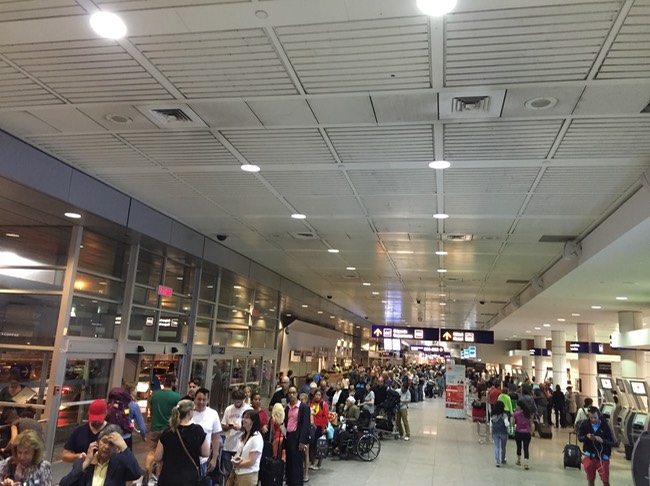
Departing Italy on an airplane never goes well. Italians do many things so, so well– food of any kind, glasses of chilled wine on outdoor patios, cobblestoned streets and old, old buildings being but a few of these– but not airports. Italian airports are a whirl of confusion, where one queue handles many issues and the rules follow no known airport logic. But once out of Italy, we usually expect smooth sailing. This time, however, we got from Napoli to Frankfurt and from Frankfurt to Montreal, and promptly smacked up against the vagaries of Canadian weather. After a lengthy wait for our delayed connection, with very little sharing of information, we were informed that our flight (among many others) had now been cancelled. We were at the mercy of our airline as to what would happen next.
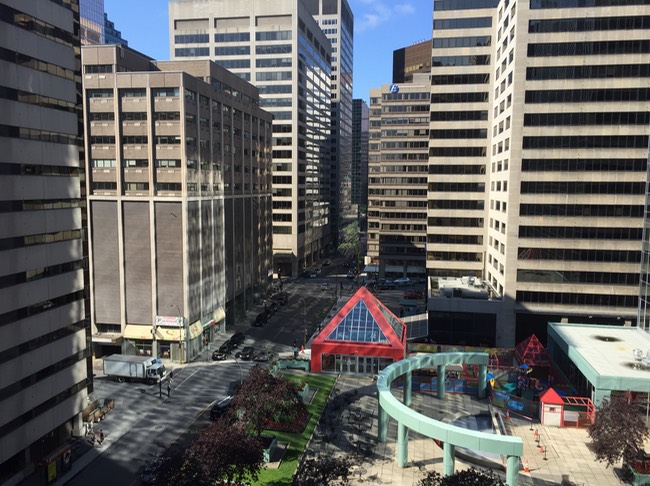
A long wait followed to collect our luggage, and an even longer one at the Air Canada ticket counter to rebook a flight to Vancouver. Water bottles and food vouchers were handed out; the wait went on. We began to hear of some people being booked on flights as much as two days later. Airline employees were looking harried; passengers were unhappy. Everyone was exhausted. When we finally reached the counter, we spoke with a sympathetic Italian woman who essentially awarded us the jackpot: a room overnight in a downtown hotel and tickets out later the next afternoon in business class. Perhaps she was pleased that we had visited her country; perhaps it was because we sympathized with her stress; perhaps she just liked the look of us. However it was, we took a free taxi to a comfortable hotel, and woke up the next morning in the heart of downtown Montreal, with the better part of a day in which to have some fun.
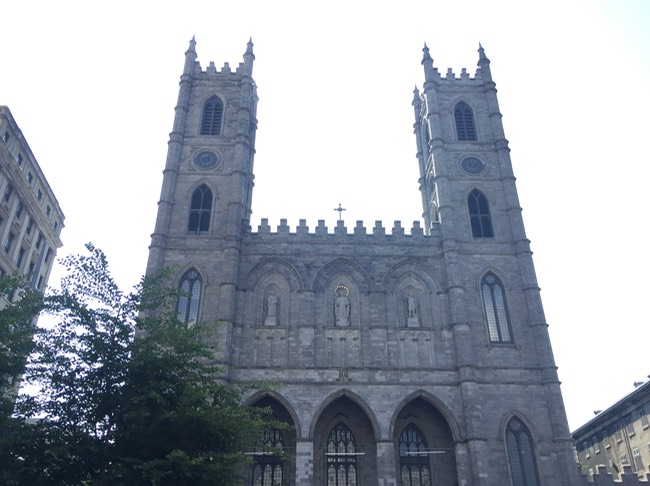
We started out with a wander around the downtown area, having a look at the shopping district and some of the famous sights– Place Jacques-Cartier, Notre-Dame Basilica, Christ Church Cathedral. It was fun and lively, although we weren’t having much success in finding the kind of breakfast we were looking for. Then, inspired, we texted a friend who knew the city well, and asked him where we should go for a good Montreal-style bagel? His answer: Saint-Viateur Bagel, in the Mile End neighbourhood. We took a taxi immediately, and found ourselves in a new world altogether.
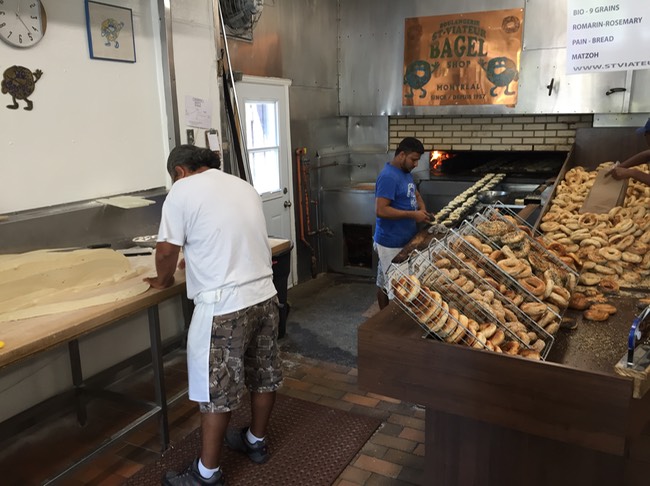
The bagels themselves were magical– chewy and sweet, and absolutely fresh. They churn them out in huge numbers 24/7, and they don’t sit for long. We still want to go right back to Montreal for more!
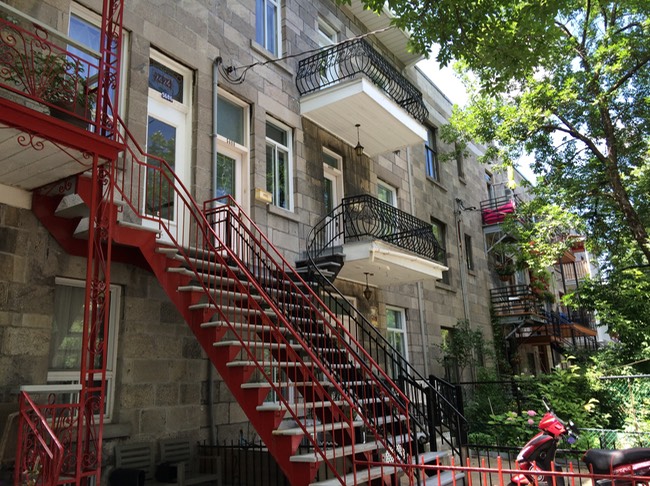
We followed the bagels with a stroll along the absolutely delightful Avenue du Parc, a busy street which combined elegant old buildings with a multi-ethnic vibe. It is chock-full of Greek restaurants, with various other types thrown in for good measure. We stopped at an Italian espresso bar with a feel that reminded us of our Main Street neighbourhood at home, and enjoyed excellent lattes.
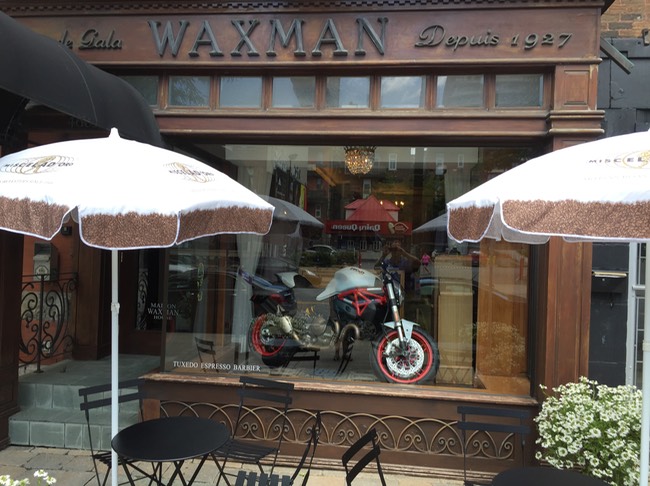
Strolling past the charming brick and brownstone buildings was a pleasure, and we perused a variety of businesses– a vintage Dairy Queen, an artisanal chocolate shop (those were tasty!), and a barber who apparently could also rent you a tuxedo and make you an espresso. Eventually, we happened on the marvellous Lola Rosa Parc, a vegetarian restaurant with a great raised patio, where we sat and enjoyed a classic Quebecois lunch of poutine and beer.
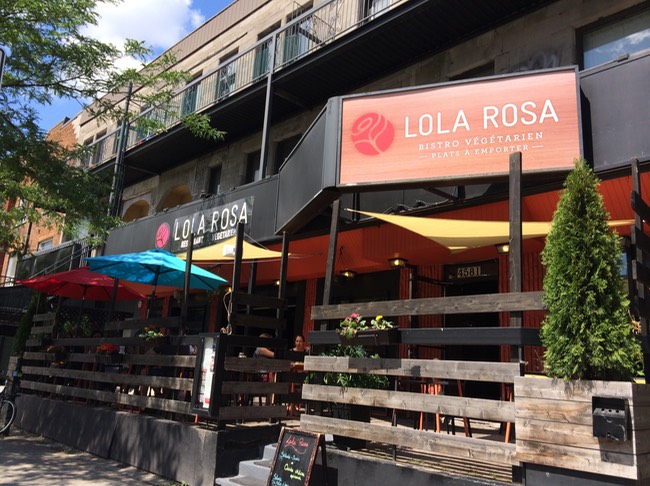
This was only my second visit to Montreal and like the first was extremely short, but this neighbourhood is a gem and I will definitely spend time there when I eventually make a proper visit. The food alone, leaning toward Mediterranean, African, and vegetarian, would be well worth exploring.
We continued along Avenue du Parc past the university district and the hill of Mont-Royal, back into downtown. After that, it was back to the hotel to grab our belongings and head out to the airport, from which we flew the rest of the way home in style. Sometimes, life can’t get any better than a business class pod and a meal with real utensils.
Photos: Christ Church Cathedral; logjam at Montreal airport; view from our hotel room; Notre-Dame Basilica; Saint-Viateur Bagel; Mile End architecture; Avenue du Parc; Lola Rosa vegetarian restaurant; Classic pod (Photos 1-5, 7 N. Wilkes)
